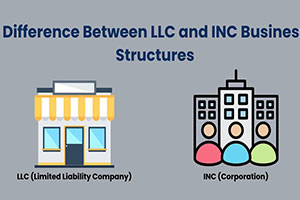Advantages and Disadvantages of an LLC for Rental Properties
Business | by
In the vast expanse of real estate investment, rental properties stand as a beacon of potential wealth and financial freedom. Yet, as any seasoned investor will tell you, the path to prosperity is laden with legal and financial considerations. One pivotal decision facing landlords today is whether to hold their rental properties under a Limited Liability Company (LLC). This choice, seemingly administrative, holds profound implications for liability, taxation, and operational flexibility. Let’s delve into the advantages and disadvantages of using an LLC for rental properties, ensuring that you, the savvy investor, are equipped with the knowledge to navigate these legal waters.
Advantages of an LLC for Rental Properties
1. Liability Protection: The Shield of the Investor At the heart of the LLC’s appeal is its robust liability protection. Operating a rental property under an LLC creates a legal barrier between the property and the investor’s personal assets. This means that in the event of a lawsuit—be it from a tenant’s injury or a contractual dispute—your personal savings, home, and other assets are shielded from judgments. This protection is paramount in today’s litigious society, providing peace of mind and financial security.
2. Tax Flexibility: Navigating the Fiscal Seas LLCs offer remarkable tax flexibility. By default, an LLC is a “pass-through” entity for tax purposes, meaning the LLC itself does not pay taxes. Instead, the profits and losses “pass through” to the owner’s personal tax return. This setup avoids the double taxation often associated with corporations. Moreover, the recent tax reforms have introduced the Qualified Business Income Deduction (Section 199A), potentially allowing LLC owners to deduct up to 20% of their business income. However, it’s crucial to consult with a tax advisor to navigate these options effectively.
3. Operational Simplicity: The Ease of Management Compared to other business structures, LLCs offer operational simplicity. There are fewer startup costs, less paperwork, and more straightforward management structures. This simplicity allows real estate investors to focus on what they do best: managing their properties and maximizing returns.
Disadvantages of an LLC for Rental Properties
1. Financing Challenges: The Hurdles of Borrowing One of the primary disadvantages of holding rental property in an LLC is the potential difficulty in obtaining financing. Many lenders are hesitant to provide mortgages to LLCs, often requiring higher down payments and offering less favorable interest rates than they do for individual borrowers. Additionally, investors may need to personally guarantee the loan, potentially undermining some of the liability protections the LLC offers.
2. Transfer Taxes and Fees: The Cost of Doing Business In certain jurisdictions, transferring property into an LLC can trigger real estate transfer taxes, adding an unexpected cost to the equation. Furthermore, there are ongoing fees associated with maintaining an LLC, including annual filing fees and, in some states, franchise taxes. These costs can add up, especially for investors with multiple properties.
3. Complexity in Multistate Operations: Navigating Legal Variances For investors holding properties in multiple states, each state’s LLC setup and taxation can vary significantly, adding a layer of complexity to your investment strategy. This can necessitate additional legal and accounting support to ensure compliance across state lines, further increasing operational costs.
Weighing Your Options: The Path Forward
The decision to use an LLC for rental properties is not one-size-fits-all. It hinges on multiple factors, including the number of properties owned, the level of personal risk tolerance, and the specific legal and tax environments of the states in which you operate.
For many, the liability protection and tax flexibility offered by an LLC make it an attractive option, worth the potential financing hurdles and operational costs. For others, the simplicity of direct ownership may align better with their investment strategy and risk profile.
Conclusion: The Informed Investor’s Choice
In the dynamic landscape of real estate investment, the choice of business structure is a critical one, with far-reaching implications for liability, taxation, and operational efficiency. The LLC, with its blend of liability protection and tax advantages, offers a compelling option for many investors. Yet, it is not without its drawbacks, particularly in financing and operational complexity.
As with any significant business decision, the key to navigating this choice lies in informed counsel. Consulting with legal and tax professionals can provide the tailored advice necessary to make the best decision for your unique situation. In the world of real estate investment, knowledge is not just power—it’s profit.






